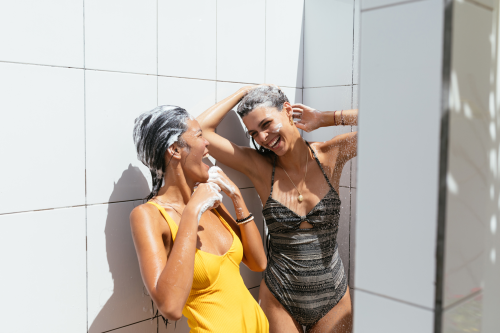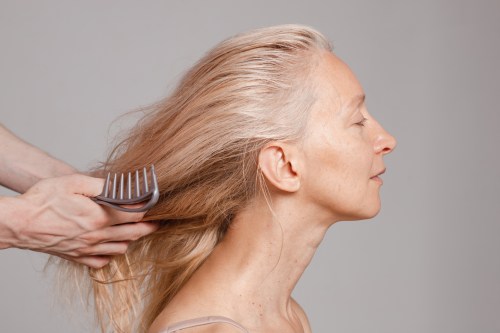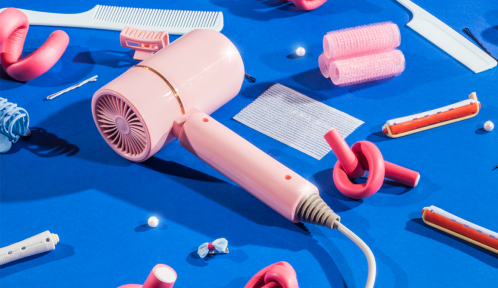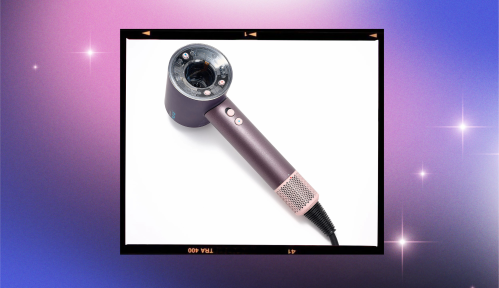The easy (and super common) mistake I always make when washing my hair
The pros weigh in on how to wash your hair the right way, because it turns out we've all been doing it wrong this whole time.
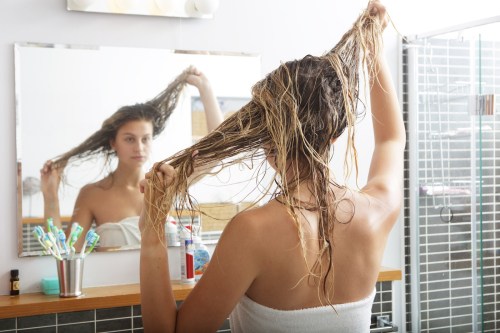
I have felt betrayed by my own knowledge exactly three times in my life: when I found out Santa Claus and the tooth fairy weren’t real (…my parents kindly decided to deliver all of that fun info in one fell swoop), when I found out that the “autographed” Justin Timberlake poster I got for my ninth birthday was actually signed by my mom, and last week, when I found out I had been washing my hair wrong for my entire life.
For as long as I can remember, the first thing I’ve done upon stepping into the shower has been getting my head wet and lathering up with shampoo, then applying conditioner. That way, the conditioner has ample time to work its magic while I’m washing my body, shaving my legs, etc. But as I recently discovered, that’s actually not the best way to do things. D
According to Britta Cox, founder of AQUIS haircare, washing your hair is the last thing you should do when you’re in the shower, because your hair is more prone to breakage when it’s wet. “Hair is up to 56 percent weaker when wet and prone to damage and breakage,” she explains, noting that traditional washing routines could be keeping our hair from being its healthiest. “Hair is made of keratin, which has an affinity for water. You’ve likely noticed how your hair is affected by even the slightest exposure to humidity in the air. Imagine the effect water has on hair each time we wash it and drench it in water.” Does anyone else feel like they’ve been living a lie?
When you expose your hair to water, she says, it becomes water logged, which causes stretching, swelling, and the opening of the cuticles. And then, “hair tangles as the raised cuticles of each strand snag on one another, all making hair prone to frizz, damage and breakage.”
In order to protect your hair from this type of water damage, your best bet is to limit its exposure in order to “protect the natural biome and cuticles to minimize the stretching and swelling of each strand and risk of damage and breakage.” To do this, Cox recommends washing your hair at the end of your shower instead of the beginning, and then using a leave-in conditioner when you get out instead of an in-shower one, which can weigh down hair and trap water. “This way hair has less opportunity to become water-logged, minimizing the stretching, swelling,” she explains. AQUIS’ three-step system—which includes a pre-wash spray, a shampoo, and a conditioner—was designed based on this principle.
“It is true your cuticles will open with the inclusion of water—by wetting our hair we are actually putting each hair strand it its most fragile state,” confirms Kerry E Yates, of Colour Collective. But, she says, she hasn’t necessarily seen evidence that waiting until the end of your shower could help prevent damage, since it’s likely being exposed to steam the entire time you’re in there, which also opens up the cuticle. To ensure your strands are properly protected, she suggests shampooing and scrubbing only your scalp (and not aggressively rubbing your ends and mid-lengths), avoiding twisting or wringing out excess water, and skipping the comb when your hair is wet.
Even if you’re doing it the right way, you still shouldn’t be washing your hair every day. And for anyone looking to take it one step further, consider the “No Poo” method.
Sign Up for Our Daily Newsletter
Get all the latest in wellness, trends, food, fitness, beauty, and more delivered right to your inbox.
Got it, you've been added to our email list.
